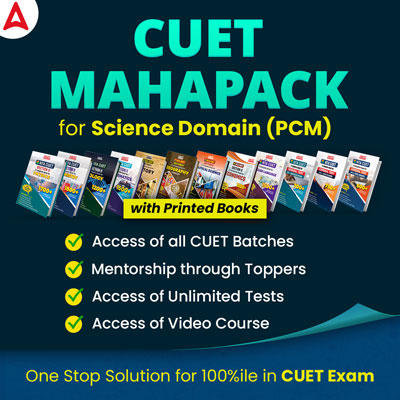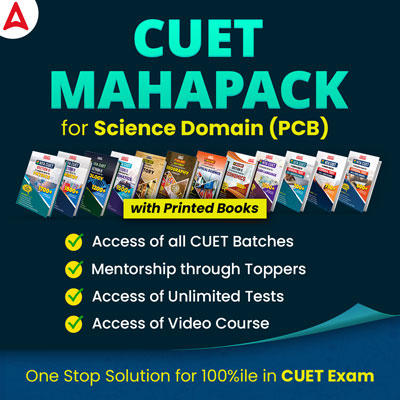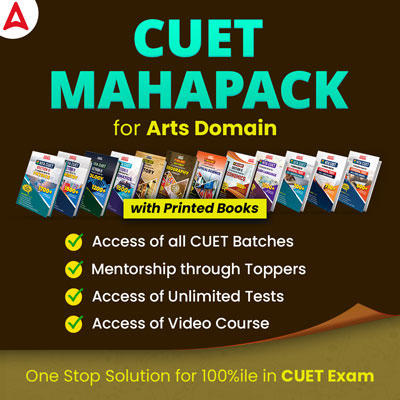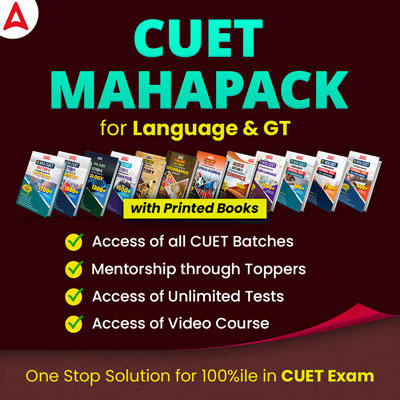Table of Contents
Physics Investigatory Project for Class 12 is released by CBSE. In Class 12 Science, Physics is considered as as most toughest and challenging subject by the students due to the fact that it covers a wide range of concepts. Physics Investigatory Project Class 12 is one part of this curriculum that strengthens a student’s comprehension of the subject.
If you are in Class 12 of the CBSE or other boards and looking for the Physics Class 12 Investigatory Project Topics, you are at the right place. In this blog, we are providing you with a list of some common Class 12 Physics Investigatory Project Topics that students can explore as part of their school coursework.
Physics Investigatory Project Class 12
Physics is one of the most fascinating areas of of science that explores natural laws and elements of the cosmos such as light, energy, force, and so on. It is an important branch of science that operates on the observation and experimentation concept. Physics concepts are taught as a separate subject in Senior Secondary Education.
Although CBSE Class 12 Physics is a practical subject, it requires practical work and project work at the end of the course. Physics Project Class 12 is part of an essential assignment that involves entirely experimental processes that you must report on. These Physics Project Class 12 improve your grasp of these subjects.
Class 12 Physics Investigatory Project CBSE Topics
Completing the class 12 physics investigatory project entails developing and executing experiments, methodically evaluating the collected results, and finally presenting the findings in the form of a complete report or a well-structured presentation. In the parts that follow,. In the parts that follow, we provide several popular CBSE class 12 Physics investigatory project samples that students may use in their studies.
Hydropower Project
Objective: The goal of the hydropower project is to learn about the force of water firsthand.
Theory: Hydropower plants at the foot of dams are built to take advantage of higher water pressure at the dam’s edge. The excess water is channeled into the dam via a tube known as a penstock. The water is then focussed on the blades of a turbine. The engine is transformed by the water pressure, and a power generator turns the turbine.
Requirements: Half gallon paper milk carton, a gallon of water, an awl or a 10p nail, masking tape, a ruler, a magic marker, a pair of scissors, a pad of paper, and a pencil to make notes are all required.
Use and Impact of Recycled Materials in Thermal Insulation
Objective: To determine which recycling procedure would be an efficient electricity insulator, experiment with Fiberglass, Pine Shavings, Polyurethane, Polystyrene, Perlite, Cellulose, Polyethylene foil, or Bubble Wrap.
Theory: This project could be useful in the summer while saving time on heating the house in the winter. When compared to other materials, fiberglass takes a little longer to cool and an average of 12 minutes to heat. Fiberglass is the most effective insulator because it warms quickly and traps heat to conserve energy.
Requirements: A particle board, a light bulb, a digital thermometer, and cardboard boxes are all required materials.
Heat Transfer in an Incandescent Lamp
Objective: How much of an incandescent lamp’s electrical power supply is lost due to thermionic emission from the filament? If the damages are significant, the deletion of incandescent lamps could significantly improve their operating performance.
Theory: Using electricity, filament temperature, and ambient temperature details, the power output may be split into thermionic emission and thermal-radiation parts. Conduction is progressively dependent on filament temperature (Fourier’s Law), but exposure is proportional to the fourth power of filament temperature (Stefan-Boltzmann Law).
Requirements: A 25-watt evacuated light bulb, a programmable power source, two high-precision digital meters, and a precise digital thermometer are all required.
Colors with Long and Short Wavelengths
Objective: The project’s goal is to measure the exterior and interior temperatures of buildings, as well as the insulation rates when the houses are painted in solid and mixed colors.
Theory: Data analysis showed that the order of internal temperature measurements from highest to lowest corresponded reasonably and precisely to the wavelengths of colors from longest to shortest. In general, Combination Color Houses lagged behind their stable counterparts. However, Exterior Temperature shows that the warmest colors are red, red/blue, grey, blue, orange, and control the green/orange house. The highest Insulation Rate was obtained from a blue home, followed by green, green/orange, red/blue, red, orange, and control.
Requirements: Oil paints, a white control house, and digital and infrared thermometers were required.
Observations of Gas in the Infrared Spectrum
Objective; The goal of this project was to investigate the effect of a gas’s chemical characteristics on its ability to process and transmit infrared radiation. The main goal was to conceal a transmissive gas heating element.
Theory: Evidence from both forms of the test confirms the molecular structure of gas, which specifically determines transmissivity in the infrared spectrum. The air contains strong absorption zones, which allow for areas of limited transmittance, resulting in some obstruction in the infrared spectrum.
Requirements: PVC pipe, spectroradiometer, 8-12 micron infrared camera with digital imaging, Blackbody, and gases are required.
Doppler effect
Objective: The following experiment is carried out to investigate what happens to sound waves by developing a visual model of what happens as a vehicle goes by.
Theory: The Doppler effect is explained by the fact that each subsequent wave crest is created from a place closer to the observer than the crest of the preceding wave, because the source of the waves is moving towards the observer. This project creates a visual simulation of what happens to the sound waves to make them sound substantially different as the car approaches than when it exits.
Requirements: Ruler, scissors, tape, toy car, two pieces of colored construction paper, some plain paper, and a marker or camera are required.
Insulation value experiment
Objective: The goal of the insulation value experiment is to compare straw insulation to standard forms of insulation, such as fiberglass and rigid foam panels, which are extensively used today.
Theory: Adequate insulation is the most important component in constructing an energy-efficient contribution. During cold weather, insulation will keep the heat inside. On hot days, isolation will trap the sun outside. Insulation materials are constructions that prevent heat from being transmitted from inside to outside of a house. Various materials can be used to insulate walls, floors, and pipelines.
Requirements: Speakers, insulation, and a digital thermometer are required.
Physics Investigatory Project Class 12 Name Full List Based on CBSE latest Syllabus
list of physics investigatory project ideas for Class 12 CBSE students, based on the latest syllabus guidelines. These projects cover a range of topics to help you explore key concepts in physics practically.
1. Electromagnetic Induction
*Study of electromagnetic induction and Faraday’s laws.
*Building a simple AC generator or dynamo.
*Investigating factors affecting induced EMF in a coil.
2. Optics and Light
*Determination of refractive index of different liquids using a laser.
*Study of total internal reflection using optical fibers.
*Understanding diffraction and interference patterns through Young’s double-slit experiment.
*Analyzing dispersion of light through a prism.
3. Electricity and Magnetism
*Construction of an electromagnet and study of factors affecting its strength.
*Building a simple electric motor and studying its working principles.
*Exploring the relationship between current, resistance, and temperature in conductors.
*Investigating the factors affecting capacitance in a capacitor.
4. Thermodynamics
*Examining the efficiency of different heat engines.
*Demonstration of the Carnot cycle and efficiency.
*Studying the effect of pressure on the boiling point of water.
*Investigating Newton’s law of cooling using different materials.
5. Semiconductors and Electronics
*Designing a simple logic gate circuit and its applications.
*Studying the characteristics of a diode and a transistor.
*Building a simple amplifier circuit using transistors.
*Construction of a voltage regulator circuit.
6. Mechanics
*Investigating the factors affecting projectile motion.
*Study of conservation of linear momentum using collision experiments.
*Demonstration of centrifugal and centripetal forces.
*Analyzing the torque on a rigid body.
7. Sound and Waves
*Study of resonance in an air column.
*Investigating the speed of sound in different mediums.
*Analyzing the frequency of tuning forks using a resonance tube.
*Studying waveforms of different musical instruments.
8. Modern Physics
*Demonstrating photoelectric effect using a simple setup.
*Analyzing the effect of magnetic fields on different materials.
*Exploring nuclear physics by simulating radioactivity decay.
*Study of Planck’s constant using LED lights.
9. Electrostatics
*Designing an electroscope and testing its sensitivity.
*Investigating the factors affecting the capacitance of a capacitor.
*Study of electric field distribution around various shapes.
*Demonstrating charge distribution on conductors.
10. Renewable Energy and Environment
*Construction and efficiency analysis of a solar cell.
*Designing a simple wind turbine and studying its output.
*Investigating the efficiency of solar panels in different weather conditions.
*Exploring energy conservation using energy-efficient appliances.
11. Magnetism
*Investigating the magnetic field around a straight current-carrying conductor.
*Study of magnetic field strength using a solenoid.
*Demonstrating Earth’s magnetic field and declination.
*Analyzing the properties of different types of magnets.
12. Communication Systems
*Building an AM or FM radio receiver.
*Studying the modulation and demodulation process in communication.
*Exploring signal transmission using optical fibers.
*Design of a simple Wi-Fi signal booster.
When choosing a project, consider one that you find interesting and can practically carry out with available resources. This will make the research and experimentation enjoyable and meaningful.
Class 12 Physics Project Topics 2024-25
The syllabus for Class 12 Physics is fairly extensive, and most students struggle to finish and revise the concepts. As you have less time to study for your board exams, it is best to choose Physics investigatory project subjects that are easy to express. In addition to the Physics Projects listed above, we’ve collected a list of some of the most common and interesting class 12 physics project topics 2024-25.
| SL. No. | Class 12 Physics Project Topics 2024-25 |
| 1 | Hydro Power |
| 2 |
Salt Water vs Tap water
|
| 3 | Hooke’s Law |
| 4 |
Proving Universal Gravitation by Warping Space-Time
|
| 5 |
Newton’s Third Law of Motion
|
| 6 |
Measuring the Speed of Light
|
| 7 | Rectifier |
| 8 |
Photoelectric Effects
|
| 9 |
Heat Transfer in an Incandescent Lamp
|
| 10 |
Use and Impact of Recycled Materials for Thermal Insulation
|
| 11 |
Insulation Value
|
| 12 |
Kinetic Energy
|
| 13 |
Chemiluminescence
|
| 14 |
Automatic Electric Train Barrier
|
| 15 |
AC Generator
|
| 16 |
To study the idea of a full-wave bridge rectifier and the idea of a coil’s self-inductance
|
| 17 |
Color vs. Heat Absorption
|
| 18 | To research the impact of applied voltage and magnetic field |
| 19 |
Newton’s Cradle
|
| 20 |
To Calculate the Sound Speed at Room Temperature
|
| 21 |
Electric Motor
|
| 22 |
Changing the Speed of Light:
|
| 23 |
Effect of Sugar Density on the Refractive Index of Water
|
| 24 |
Internal Reflection Phenomenon
|
| 25 |
Effect of Mass on Terminal Velocity
|
Class 12 Physics Investigatory Project Topics for Board Exams
some interesting physics project topics for Class 12 (2024-25) that align with CBSE guidelines and can be both engaging and educational:
Electromagnetic Induction:
- Topic: Study of Faraday’s Law of Electromagnetic Induction
- Details: Investigate how changing magnetic fields induce current in a coil and the factors that affect it (number of turns, core material, magnetic field strength).
Wireless Power Transmission:
- Topic: Concept and Working of Wireless Electricity
- Details: Demonstrate how wireless power transfer works, especially focusing on inductive coupling and its applications in charging devices like phones.
Solar Energy and Efficiency:
- Topic: Solar Power Generation and Efficiency of Solar Cells
- Details: Measure the efficiency of different types of solar panels under various conditions (angle of sunlight, intensity, temperature) and explore how they convert sunlight to electricity.
The Physics of Sound:
- Topic: Acoustics and Soundproofing Techniques
- Details: Investigate sound waves, their propagation, reflection, and absorption, and how different materials can block or reflect sound.
Optics and Lenses:
- Topic: Study of Optical Instruments (Microscope, Telescope)
- Details: Build simple models of a microscope or telescope, and explain how the combination of lenses can magnify distant or tiny objects.
Magnetic Levitation:
- Topic: Magnetic Levitation and Its Applications
- Details: Demonstrate magnetic levitation using neodymium magnets and explain how maglev trains work.
Newton’s Laws and Motion:
- Topic: Verification of Newton’s Second Law of Motion
- Details: Perform experiments to verify the relationship between force, mass, and acceleration using a cart, weights, and pulleys.
Quantum Mechanics and Computing:
- Topic: Introduction to Quantum Computing
- Details: Present the basic principles of quantum mechanics, like superposition and entanglement, and their application in quantum computers.
Electric Circuits and Superconductivity:
- Topic: Study of Superconductors and Their Applications
- Details: Explore the concept of superconductivity, its temperature dependence, and its potential use in frictionless energy transfer.
Fluid Dynamics and Bernoulli’s Principle:
- Topic: Applications of Bernoulli’s Principle in Fluid Flow
- Details: Conduct experiments demonstrating Bernoulli’s principle, explaining how airplanes fly or how fluid pressure works in pipes.
Semiconductors and Transistors:
- Topic: Study of Transistor as an Amplifier
- Details: Build simple circuits to showcase the function of transistors in amplifying electrical signals.
Electrostatics and Capacitors:
- Topic: Study of Capacitors and Their Function
- Details: Investigate how capacitors store and release charge and their role in electronic circuits.
Radioactivity and Nuclear Physics:
- Topic: Study of Half-Life of Radioactive Materials
- Details: Demonstrate and analyze the decay of radioactive materials, exploring concepts like half-life and radiation safety.
Physics Investigatory Project Class 12 PDF
To give students idea about the format of the investigatory project, below we have provided a sample PDF of the Class 12 Physics Investigatory Project. Students should use this Class 12 Physics Investigatory Project as a guide while creating their own project. Students are encouraged to create their own project so that they can embrace the practical application of physical sciences.
Class 12 Physics Investigatory Project Sample PDF
Physics Investigatory Project Class 12 PDF Content
how to structure your Physics investigatory project Class 12 PDF form under the Bihar School Examination Board or any similar educational board. Typically, such investigatory project in physics for class 12 follow a standard format:
- Title Page
- The title of the project
- Your name
- Your school’s name and address
- The academic year
- Acknowledgements
- Thank the people who helped you with the project.
- Table of Contents
- List of headings and subheadings with page numbers.
- Abstract
- A brief summary of the project, including the aim, the method, and the findings.
- Introduction
- Provide background information about the topic.
- Clearly state the objective of the project.
- Theory
- Explain the scientific principles and theories that form the basis of your project.
- Experiment
- List the materials used.
- Detail the procedures you followed.
- Observations and Results
- Present your data and findings in an organized manner, using charts and tables if necessary.
- Discussion
- Analyze your results.
- Discuss whether the experiment met the objectives and what you learned.
- Conclusion
- Summarize your findings, linking back to your initial objectives.
- Mention any limitations encountered and propose future work.
- Bibliography/References
- List of books, articles, and other resources you used for the project.
- Appendices
- Include any additional material like original data, detailed calculations, or extra pictures.
For a detailed and tailored project, you’d usually choose a specific topic or phenomenon you want to investigate, for example, ‘Studying the effect of the length of a simple pendulum on its period’ or ‘Examining the energy efficiency of various light bulbs’.
Check: CBSE Class 12 Physics Syllabus 2024
Physics Project for Class 12 Creation
Creating a Physics project for Class 12 can be an exciting opportunity to explore and demonstrate your understanding of advanced physics concepts. Here’s a guide to conceptualize and execute a Physics project effectively:
Selecting a Topic
- Choose a Relevant Topic: Pick a topic that aligns with your curriculum and interests. It could range from classical mechanics to modern physics like quantum mechanics or relativity.
- Examples: Solar Power Systems, Electromagnetic Induction, Wireless Energy Transmission, Study of Optical Lenses, or a project on the Doppler Effect.
Project Proposal
- Objective: Define what you aim to achieve or demonstrate through your project.
- Hypothesis: If applicable, formulate a hypothesis you intend to test.
- Materials Required: List all the materials and equipment you will need.
- Methodology: Outline the steps you will take to complete the project.
Research and Data Collection
- Study: Engage in extensive research on your topic. Use textbooks, academic journals, and credible online resources.
- Experiments: If your project involves experiments, conduct them methodically, ensuring you follow all safety guidelines.
Observation and Results
- Data Recording: Record all observations and results meticulously. Use tables, charts, or graphs for clarity.
- Analysis: Analyze the data to draw conclusions. Ensure your analysis aligns with your objectives and hypothesis.
Presentation
- Report Writing: Compile a project report including the introduction, methodology, observations, analysis, and conclusion.
- Visual Aids: Prepare visual aids like posters, models, or PowerPoint presentations to support your report.
- Practical Demonstration: If possible, demonstrate an experiment or model as part of your presentation.
Conclusion
- Summarize your findings and state whether your results support the hypothesis.
- Discuss the implications of your project and any real-world applications.
Citations and References
- Ensure to cite all the sources used in your research to avoid plagiarism.
Feedback and Improvement
- After presenting your project, seek feedback.
- Reflect on what could be improved or explored further in future projects.
Class 12 Physics Investigatory Project Latest topics
Some Class 12 Physics Project Topics 2023-24 are given here.
- Solar Cooker Project: Study the principles of solar energy conversion and cooking.
- Electromagnetic Crane: Demonstrate how electromagnetism can be used to lift objects.
- Wireless Electricity Transmission: Explore the concept of transmitting electrical energy without wires.
- Study of Acoustic Materials: Investigate how different materials affect sound absorption.
- Pendulum Wave Demonstration: Show how pendulums of different lengths can create wave patterns.
How to Get Good marks in Class 12 Physics Practicals?
Related Post:
Class 12 Chemistry Investigatory Projects

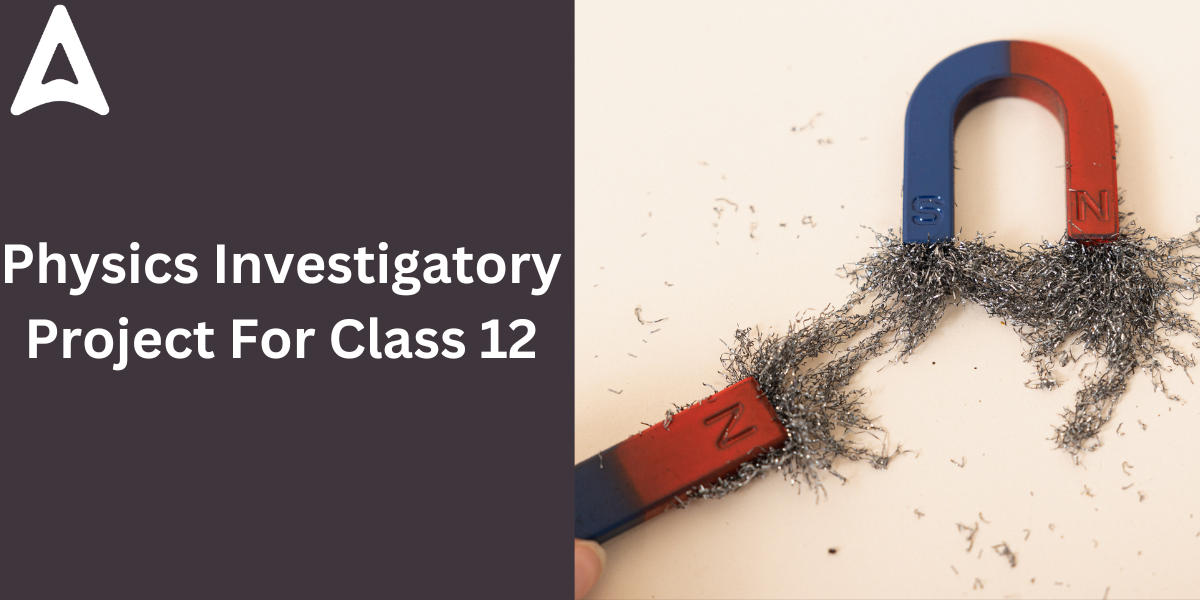




 CBSE Class 12 Physics Viva Questions wit...
CBSE Class 12 Physics Viva Questions wit...
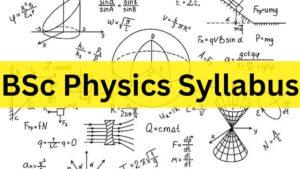 BSc Physics Syllabus 2025: Check Year Wi...
BSc Physics Syllabus 2025: Check Year Wi...
 7 Rainbow Colours Name in Order- Check V...
7 Rainbow Colours Name in Order- Check V...
